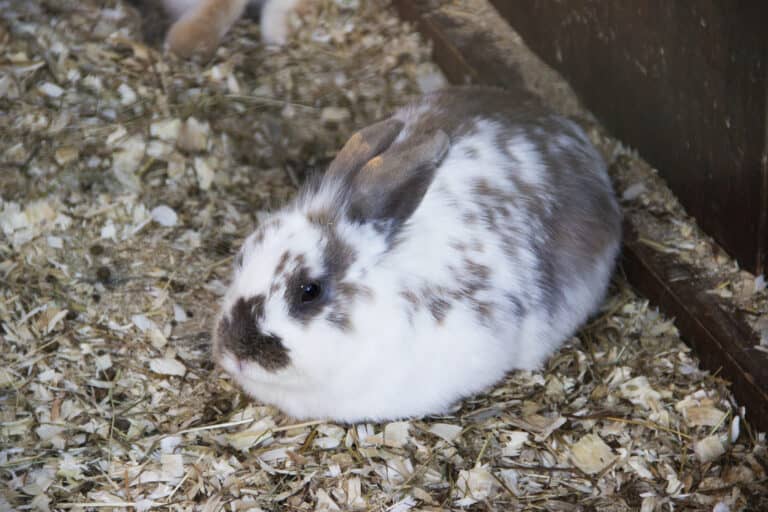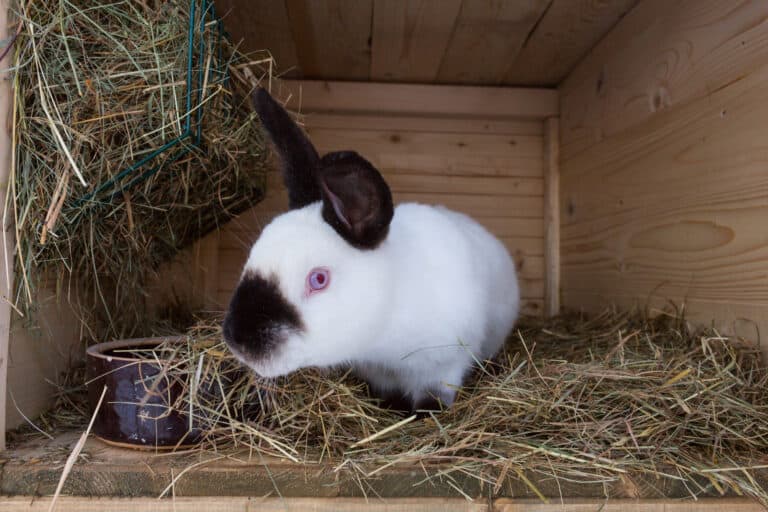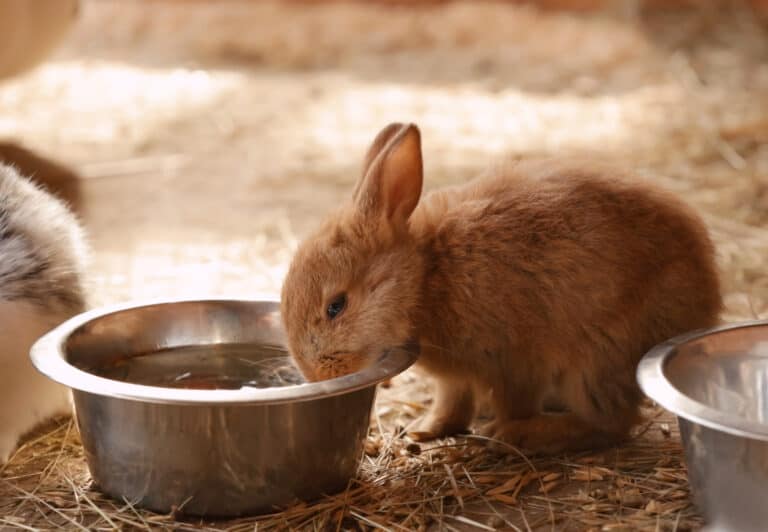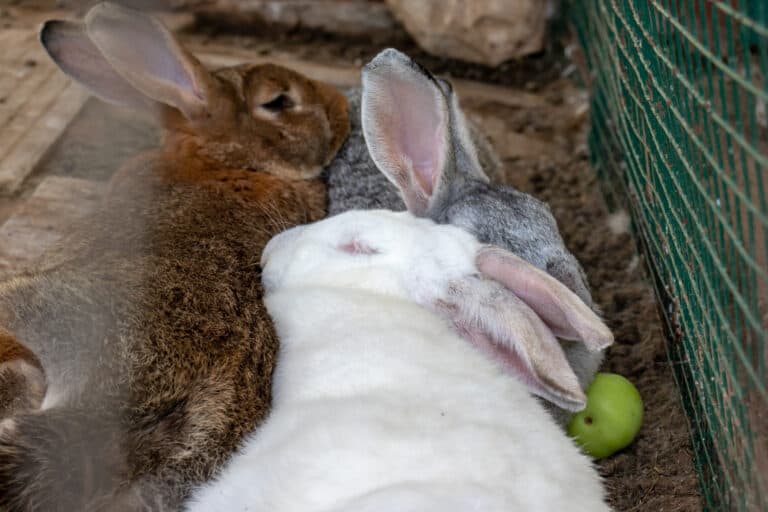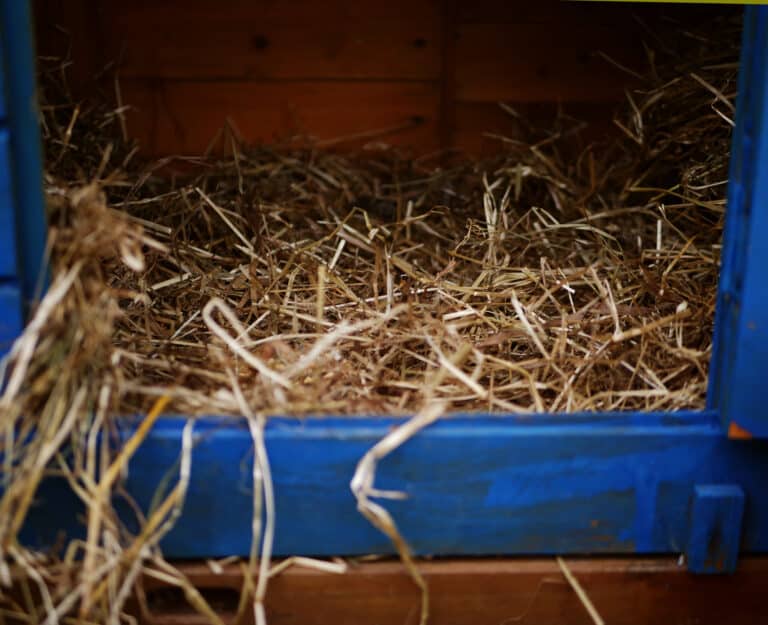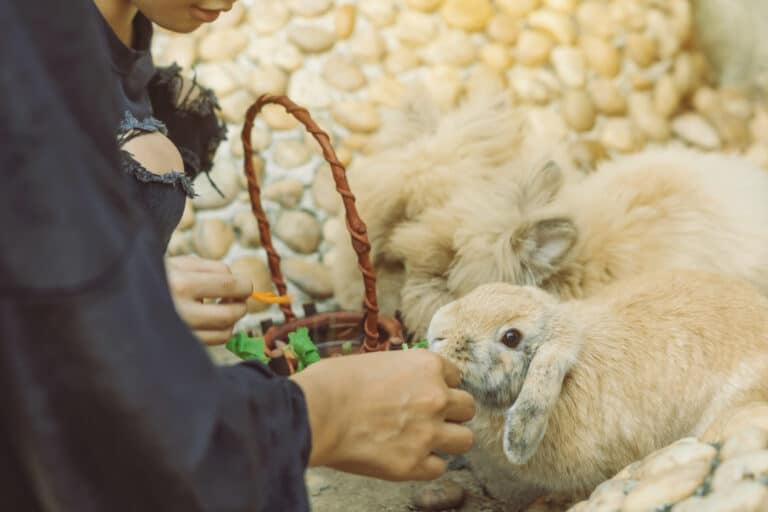Why Do Baby Rabbits Die Suddenly?
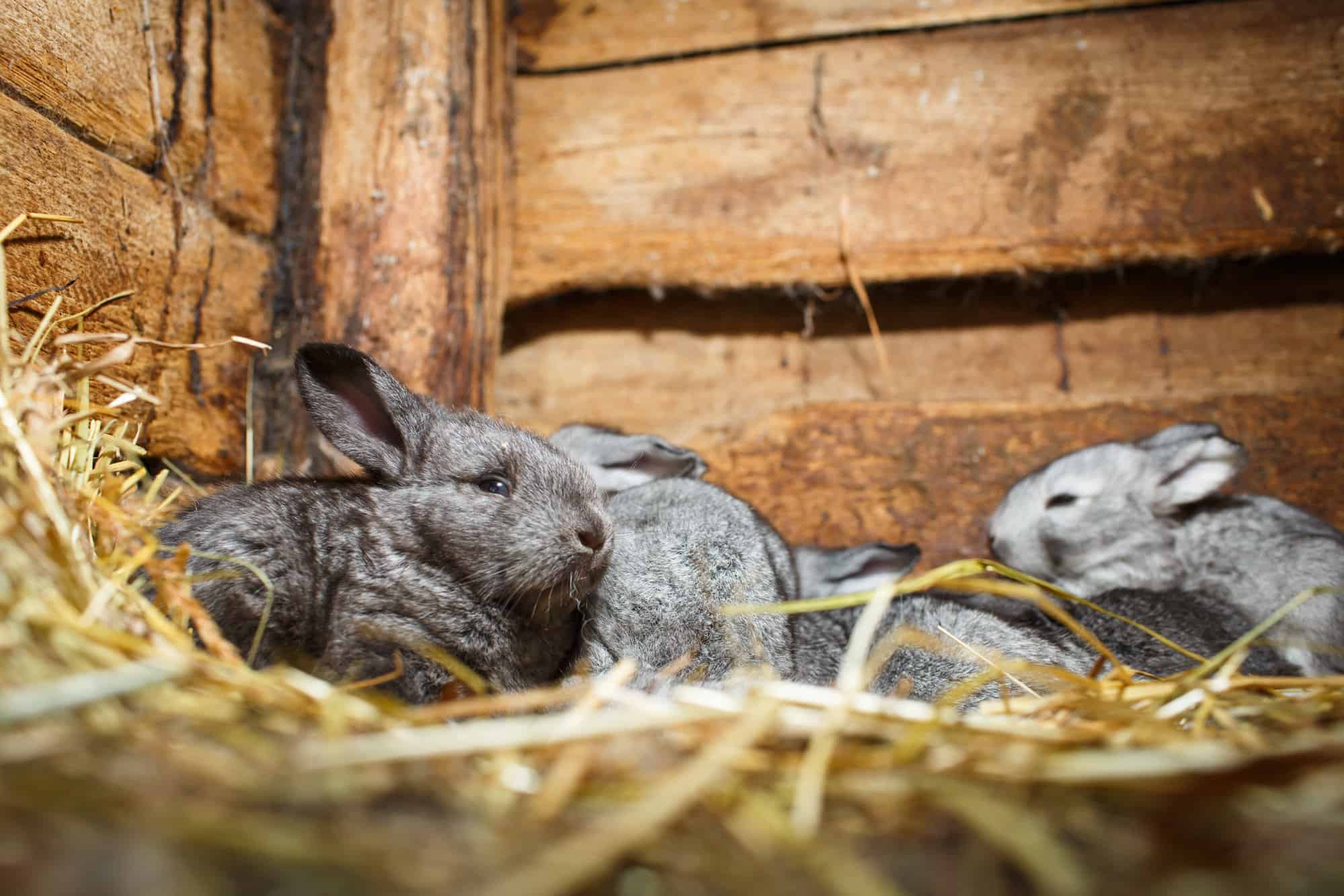
The joy of seeing a litter of newborn bunnies can turn to sadness with their sudden death. If you’ve ever experienced the pain of losing your cute little bundles, take heart. You’re not alone. Unfortunately, this is a common occurrence. Tiny buns who look healthy can succumb to health issues without showing definitive signs of illness. Thus, fur parents who have lost their precious critters can’t help but wonder why they die suddenly.
Baby bunnies are fragile creatures and can be challenging to take care of. And sometimes, despite your best efforts, they fall ill and die. There are common reasons why such a tragic event happens. Hopefully, knowing what these are will help you keep your adorable buns in the pink of health until they reach adulthood.
Why Do Baby Rabbits Die Suddenly?
Baby rabbits die suddenly from many causes. Let’s look at the most common ones.
Heart Attack
As we mentioned, baby buns (or kits) are fragile creatures. They get easily frightened by sudden noises, especially loud and unfamiliar sounds, which sometimes lead to heart attacks. Examples of such noises are firecrackers exploding nearby or loud barking from a neighbor’s dog. Because they’re prey animals, hearing loud and unexpected noises can make baby buns fear for their life, thinking that a predator is out to get them.
Occasionally, heart attacks occur due to natural causes, such as when a rabbit is born with a weak heart. But fear is the more common reason. To address this issue, keep your baby bunnies in a safe area, well away from your other pets. Placing the cage in the quietest area of your home can boost your kits’ chances for survival.
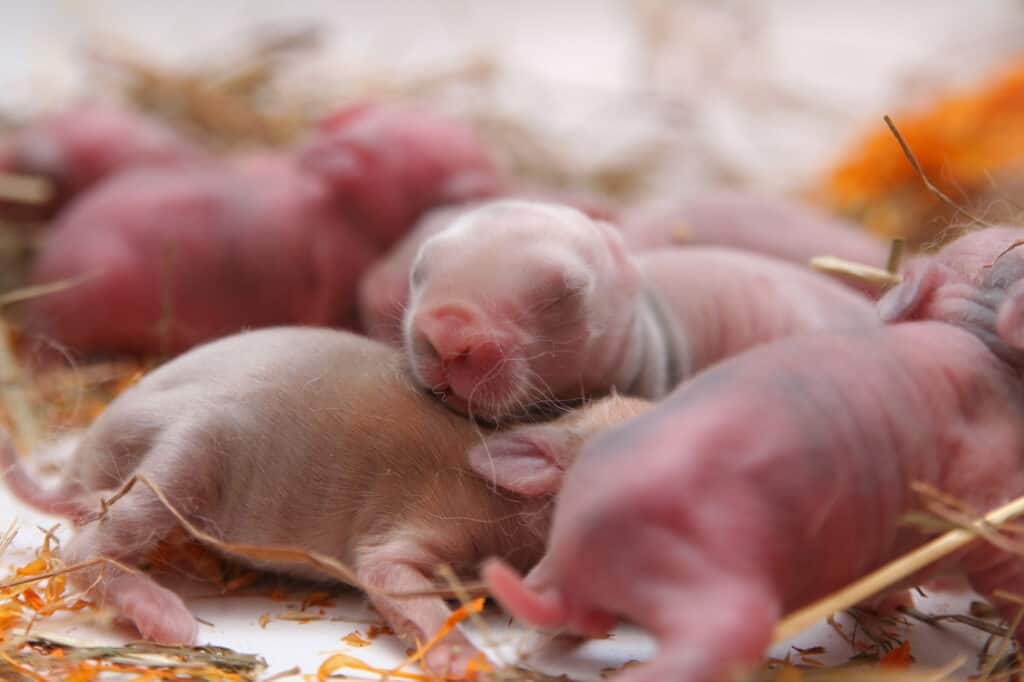
Hereditary Diseases
Like humans, rabbits can inherit faulty genes, making them prone to certain illnesses. This commonly occurs with pet rabbits sold by unethical breeders who don’t take the time to research the lineage and genetic make-up of the bunnies they breed. For example, in-breeding or mating rabbits from the same litter increases the chances of the kits inheriting a genetic condition, such as diaphragmatic hernia and ataxia.
Get your bun only from reputable rabbit rescues or breeders to help ensure that your fur baby comes from a healthy line.
Attacks from Other Animals
Your pet cats or dogs may not mean your baby buns any harm. They may simply be curious about the wriggling, furry bunch, but sometimes, the mere sight of larger animals can make rabbits panic, causing their hearts to stop. In other instances, your other animal companions can attack the rabbits. Cats and dogs may see the rabbits as prey and attack the little ones, or wild creatures, like snakes, can bite a baby bunny. The snake may not be venomous, but the shock from the attack can be enough to kill your rabbit.
To keep your kits safe, make sure their cage is made of sturdy materials and constructed in such a way that makes it difficult for predators to get in. This is particularly important if you house your rabbit outdoors.
Unsanitary Living Conditions
Baby rabbits are particularly susceptible to illnesses because their bodies aren’t yet strong enough to fight disease-causing germs and bacteria. Thus, it’s a must that you keep their cage clean at all times. Leaving your cleaning chores for another day allows poop and pee to build up. This not only makes the cage stink but also attracts flies and rodents, which can carry diseases to your bunnies. Dirty cages are also perfect breeding grounds for bacteria, which can impact the health of your fur babies.
Cleaning the cage should be part of your daily routine. Remove the leftover food and wash the food and water bowls. Clean the litter area and change soiled bedding. Deep-clean the cage weekly with a rabbit-friendly disinfectant. The extra work will be worth it as it helps you save money on vet bills and will likely save the life of your baby bunnies.
Insufficient Milk
Like other babies, kits need their mother’s milk to thrive. However, their mother might not produce enough to keep them nourished. This is especially true during the first few days after the doe (female rabbit) has given birth. By the fifth day, milk production often increases to accommodate the needs of the babies. But in cases of large litters, there might not be enough milk for all the babies, and the weaker ones may not survive.
To keep the mother’s milk production up, make sure she’s well-nourished and hydrated. Provide her plenty of hay and some leafy greens. Also, check the kits regularly to ensure that they look healthy.
Swallowing Sharp Objects
Baby rabbits are curious and adventurous little creatures. Like human babies, they’re keen on exploring their surroundings and, in the process, learn more about the world. However, their curiosity can sometimes lead to trouble, such as when they swallow something inedible or dangerous, like sharp objects. Rabbits who ingest something sharp can suffer from severe internal injuries, causing them to bleed internally. If left undetected, it can lead to death.
To protect your little pets from the risk of swallowing hazardous objects, keep them inside their cage when you’re not around to supervise their activities. When you let them out of their enclosure for much-needed exercise, watch them closely to ensure they’re not eating something they shouldn’t.
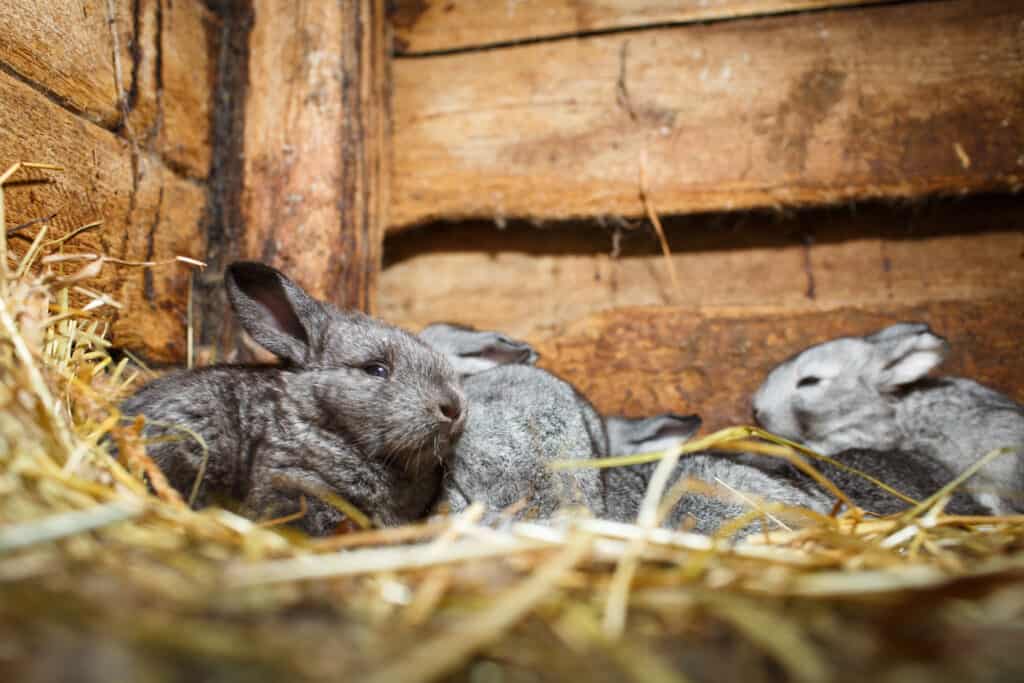
Signs That Your Rabbit Is Dying
You may not want to see these signs. No one does. However, knowing what indications to watch out for can help you save your bunny’s life. At the very least, you can make him more comfortable during his last minutes of life.
- Unwillingness or inability to move
- Unresponsive to stimuli
- Not eating or drinking
- Body tremors
- Whimpering
- Shortness of breath or spasmodic breathing
- Screaming
- Bluish tongue
- Watery poop
What Do If Your Rabbit Is Dying
Seeing your bun in the throes of death can be heartbreaking. But the worst thing you can do is leave him alone because you can’t stand watching him suffer. You can do some things to ease your rabbit’s passing or even possibly snatch him from the jaws of death.
- Take your rabbit to the vet: Make this your top priority. As in, drop everything and rush your fur baby to a rabbit-savvy vet. Even if the doctor cannot save your bun’s life, it’s important to know the cause of death. If it’s from a transmissible disease and you have other rabbits, you’ll need to ensure they don’t catch the ailment.
- Provide first aid: If you can’t take your pet to the vet right away, provide first aid in the meantime. Try to feed your rabbit or make him drink if he can. Bottle feed your baby bunnies if they won’t eat or drink out of a bowl.
- Keep your rabbit warm: If you keep your bun outdoors, bring him in to prevent him from getting cold. Place him in a warm area and let him rest in a box lined with soft clothing. Keep children and other animals away so they won’t disturb your fur baby.
- Comfort your bunny: Stay by your pet’s side and keep him calm. Make sure he’s warm and snug. If your bun is used to being held, petting him can make him feel more relaxed.
Baby rabbits can die suddenly even if you provide the best of care. Though it can break your heart, knowing the potential causes of their deaths can help you take steps to lessen the risks of such an unfortunate incident from befalling your little furry companions.
We hope you enjoyed this post! If you did, will you give it a share or two 🙂 Thank you! ~from Every Bunny Welcome


